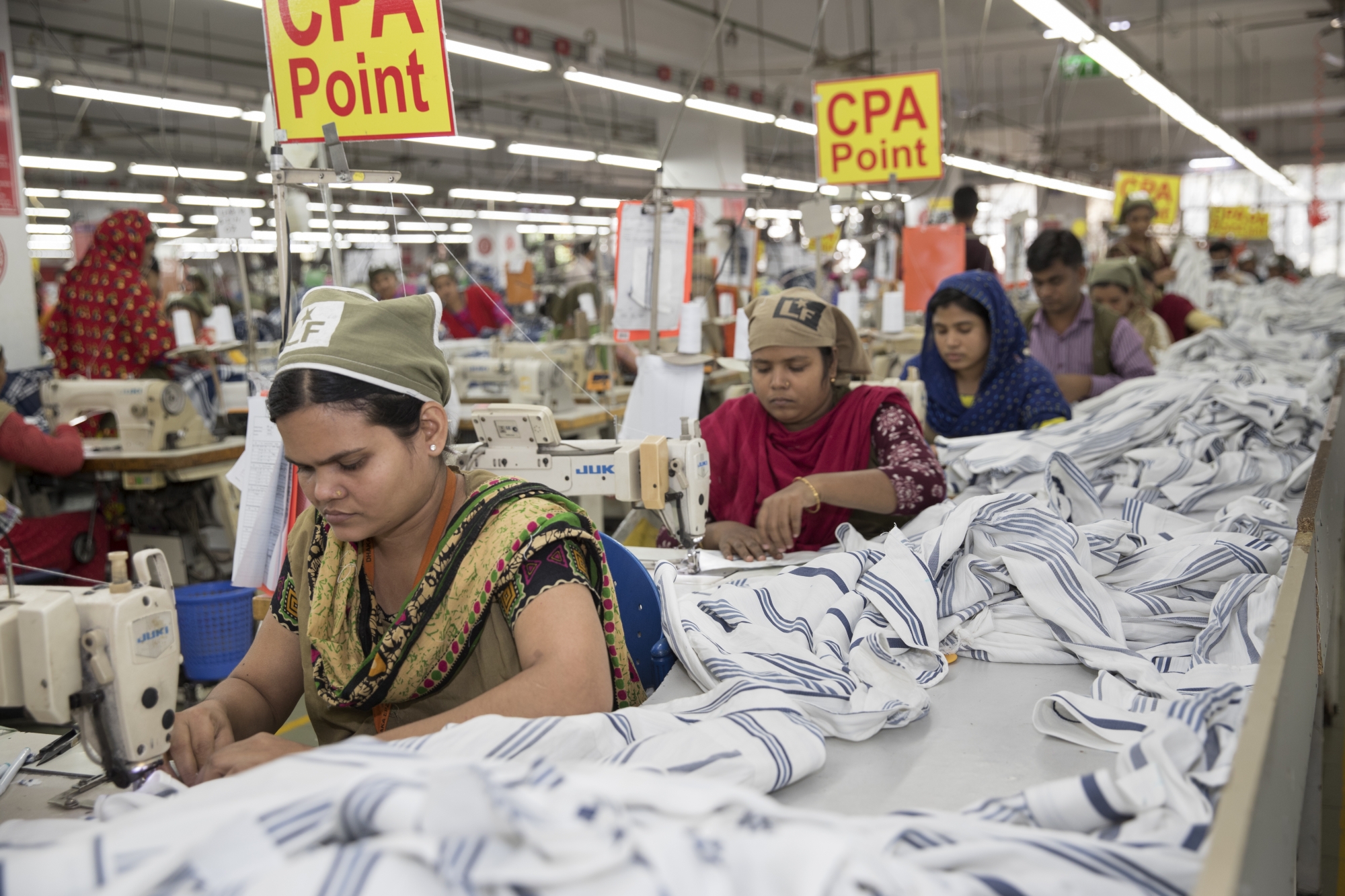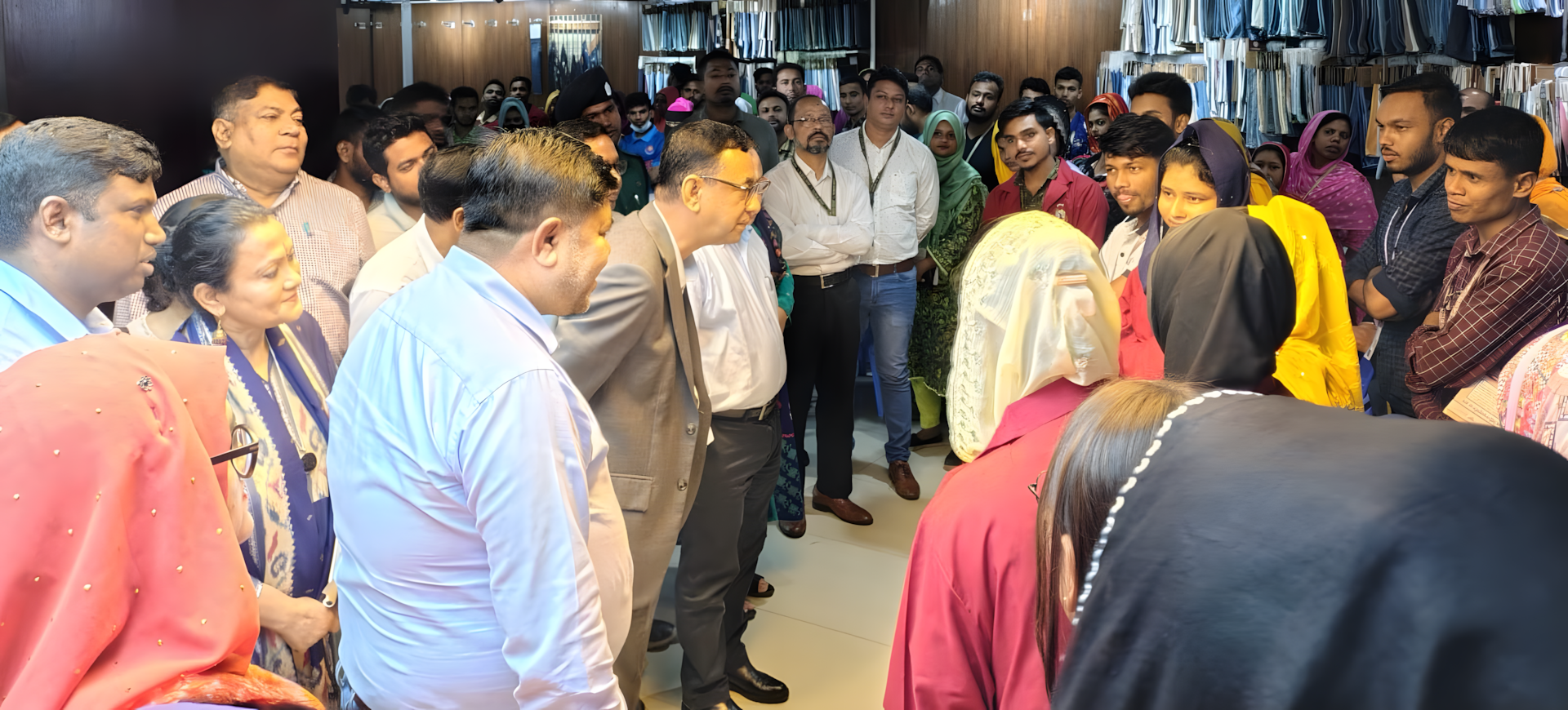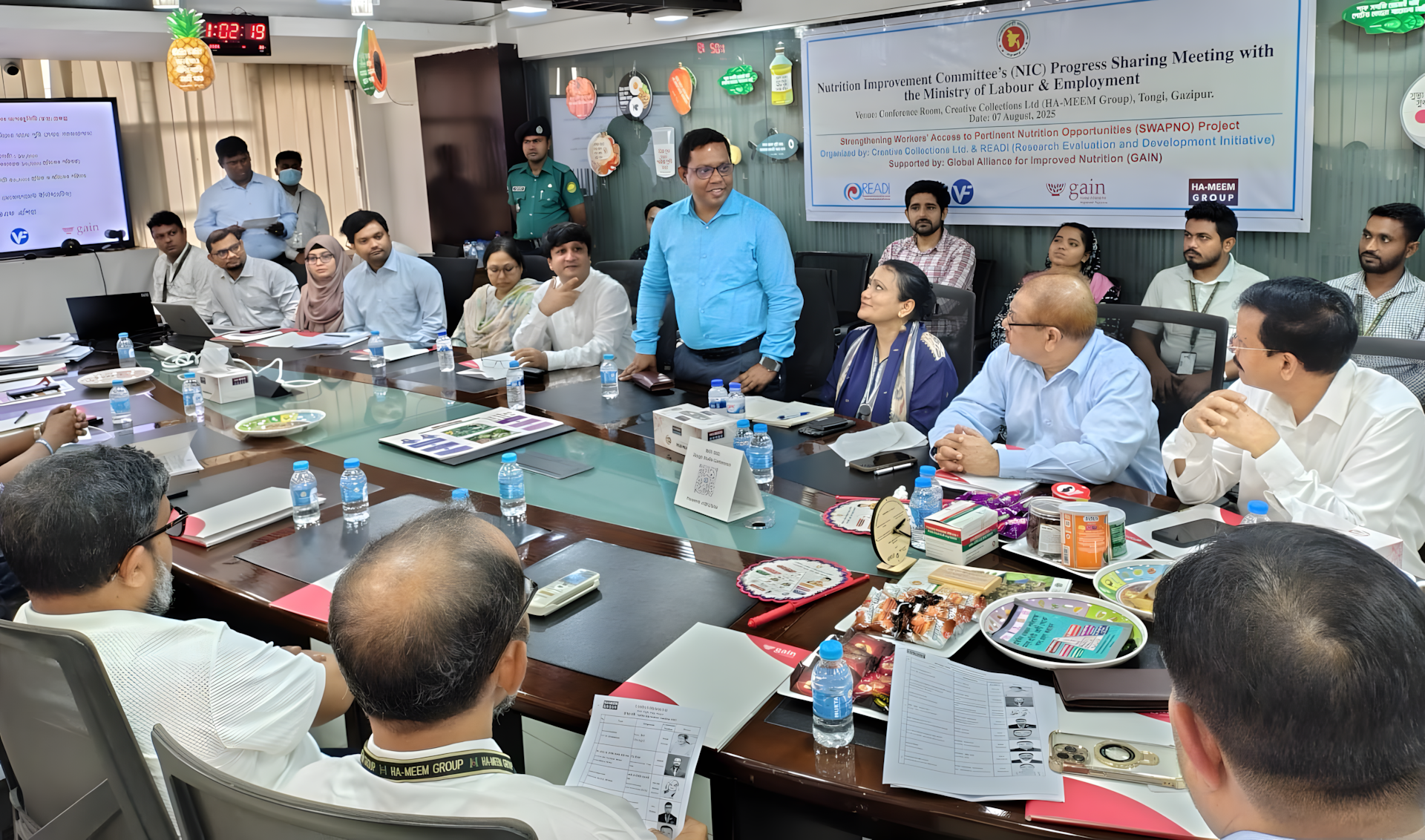Every day, millions of workers in Bangladesh’s bustling garment factories often face challenges in accessing safe and nutritious food due to long working hours and affordability constraints.

Bridging this gap, the Global Alliance for Improved Nutrition (GAIN) pioneered the implementation of workforce nutrition programme - Strengthening Workers Access to Pertinent Nutrition Opportunities (SWAPNO) since 2015. What began as canteen improvements, Fair Price Shops (FPS), and targeted micronutrient supplementation efforts in a handful of factories have now snowballed into a full-fledged national movement.
Today, Bangladesh, widely recognised as a global hub for garment production and one of the world’s fastest-growing economies, is making headlines for a different reason: it is setting the pace in government-led workforce nutrition. Bangladesh has long been a shining example of what’s possible when employers, government, and partners come together to invest in the health of workers. With malnutrition still a major public health concern, the government recognised that improving workplace nutrition could be a powerful strategy to enhance both population health and national productivity. With each milestone - from pilots to pledges, to programme implementation, to policy, the country is proving that healthier workers mean stronger businesses, more resilient supply chains, and a brighter economic future.
Building the Bangladesh Workforce Nutrition Alliance
To take this vision forward, in 2022 the Ministry of Labour and Employment (MoLE), through the Department of Labour (DoL), joined forces with GAIN to launch the Bangladesh Workforce Nutrition Alliance. This initiative was designed to empower employers in both formal and informal sectors to act on four key pillars of workforce nutrition:
• Healthy food at work
• Nutrition education
• Breastfeeding support
• Nutrition-focused health checks
Since its launch, the employees and employers from more than 221 companies have been sensitised and trained on the importance of nutrition. For workers, this means more than just information, it means healthier meals at work, stronger families at home, and a workplace culture that values wellbeing. For employers, it signals reduced absenteeism, higher productivity, and a healthier, more resilient workforce. Many companies have gone further to weave nutrition education into their annual training programmes and even experimenting with tools like the “food plate” to promote diet diversity among employees.

From Pilots to National Policy
This groundwork of SWAPNO implementation set the stage for an important turning point. On 7th August 2025, the Secretary of the MoLE visited the Creative Collection Ltd., Ha-meem Group, to observe their workforce nutrition intervention firsthand. With great enthusiasm, a follow-up meeting was convened by MoLE with support from GAIN on the 24th of August 2025. This high-level meeting brought together 17 stakeholders including representatives from the DoL, the Directorate of National Consumer Rights Protection (DNCRP), Bangladesh Garment Manufacturers and Exporters Association (BGMEA), Bangladesh Knitwear Manufacturers and Exporters Association (BKMEA), Federation of Bangladesh Chambers of Commerce and Industry (FBCCI), along with FPS partners Apon Bazaar, Direct Fresh, and Roshod Wellbeing.
The discussion centered on scaling nutrition education, improving diet quality through factory meals diversification, expanding FPS to promote access to affordable, safe and nutritious foods, and strengthening multi-stakeholder co-ordination and collaboration among partners.
The momentum culminated on 24 August 2025, when the Secretary of MoLE formally issued a directive to industry associations such as the BGMEA, BKMEA, FBCCI, and the Employers’ Federation to scale up the Workforce Nutrition Programme and expand the FPS initiative across industries.

Policy Breakthrough: Scaling Nutrition Nationwide
This marks a major policy breakthrough, reflecting the Government’s commitment to:
• Ensuring affordable, safe, and nutritious food for workers
• Scaling the SWAPNO model for meal diversification and nutrition awareness
• Strengthening factory canteens with diverse and balanced meals
• Expanding multi-stakeholder collaboration for long-term sustainability
The Secretary emphasised the need for a joint action plan with clear timelines, while industry associations reaffirmed their commitment to nutrition-sensitive interventions. With FPS partners like Apon Bazaar, Direct Fresh, and Roshod Wellbeing already on board, the foundation for large-scale impact is stronger than ever.
Leading by Example
What began as pioneering company initiatives has now evolved into a national movement. Together with industry associations, FPS partners, and development stakeholders, this step is accelerating progress toward a healthier, more productive workforce and a more resilient food system in Bangladesh.
Bangladesh’s journey proves that workforce nutrition is not a luxury but a necessity for sustainable businesses. As the country continues to scale these efforts, it sets a powerful example for other countries to follow.